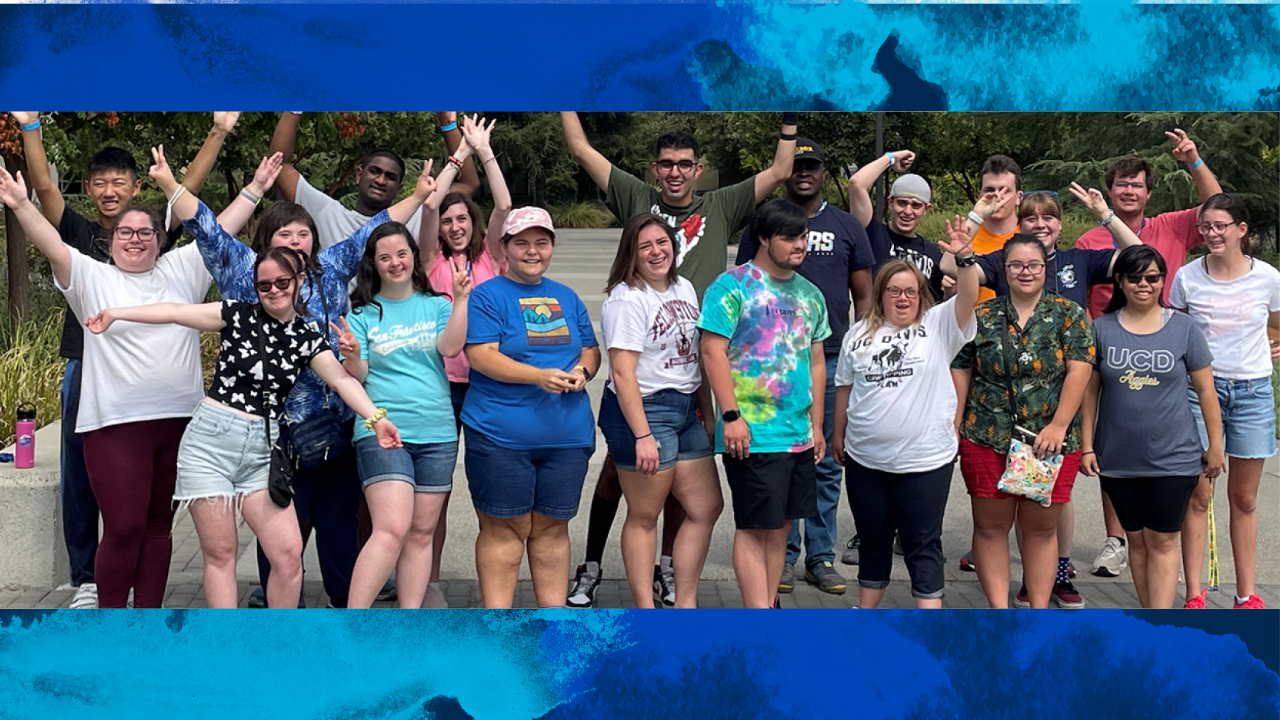
It Starts with a SEED: SDG 8 at UC Davis
The United Nations’ 2030 Agenda for Sustainable Development includes 17 Sustainable Development Goals (SDGs). SDG 8: Decent Work and Economic Growth is a goal that encapsulates inclusivity and sustainability in relation to economic growth. Specifically, the United Nations sets a high standard to stimulate and further economic growth, employment, and decent work opportunities as aligned with sustainable, inclusive, and productive characteristics. Within this framework, SDG 8 calls for the inclusion of persons with disabilities and young people, emphasizing the need for equality of economic opportunity in Goal 8.5.

As the global economy is in a state of recovery, it is vital to contribute to projects, locally and globally, that aid individuals in finding work, achieving financial literacy, and engaging in education or training. According to the United Nations, in 2022, one in four young people, between the ages of 15 and 24, are not actively engaged in employment, training, or education. Young women are twice as likely to face this problem than men (United Nations). The statistics are more concerning for individuals with disabilities. Within the State of California, only 40% of adults with disabilities are currently working, many of whom do not work full-time or for a living wage (California State Council on Developmental Disabilities). These statistics spur concern, especially in terms of implementing the ‘no one left behind’ principle of the SDGs.
With the need to engage and prepare young individuals, local organizations and initiatives are motivated to drive change with a bottom-up approach. The Redwood SEED Scholars Program at the University of California, Davis, aligns with this mission. SEED stands for Supported Education to Elevate Diversity, and this four-year program strives to support young adults with intellectual disabilities.
The five areas of support given to the scholars include residential living, academic, health and wellness, social inclusion, and employment. While all are important in holistically supporting independence, the employment segment is the most relevant for SDG 8. Scholars have opportunities throughout their 4 years to work in internships and other jobs, harnessing valuable skill sets.

For the first two quarters of their first year, scholars focus on building skills. This includes learning how to write a resume, engage in professional communication, apply to jobs, and ultimately, how to interview. Then, in spring quarter, scholars start either a paid or volunteer position on campus. Across the four cohorts of 41 students, there are currently 46 total positions at 28 job sites. Most scholars hold more than one position and actively work throughout the next 3 years to explore different jobs and learn which work environment suits them best, diversify their skill sets, and identify barriers that exist.
Peer mentorship is a cornerstone of the program, and every week, over 40 employment mentors provide support in such areas as breaking down tasks into smaller steps and navigating workplace conflict management for scholars, but they never do the work for them. This is because a guiding principle of the program is “Dignity of Risk.” Dignity of Risk refers to being given the opportunity to make decisions for yourself even if there is a chance for adverse consequences (Mental Health and Developmental Disabilities National Training Center). Often, people with disabilities are not given the opportunity to make decisions for themselves because people assume they cannot or that they should not be able to or want to shield them from potential negative consequences. This mindset, however, is detrimental to enabling individuals with disabilities to live independently. The Redwood SEED Scholars Program reflects this principle in the 10+ hours of mentor training and ongoing support from full-time staff and mentor leads.

The Redwood SEED Scholars Program promotes inclusion and productive attributes for individuals, which directly supports SDG 8. This program sets a foundation for a successful career of competitive and integrated employment in alignment with SDG 8.5. The program actively contributes to SDG 8 locally by supporting the development of the scholars’ abilities and opportunities to contribute to economic development, productive work, and equitable initiatives.